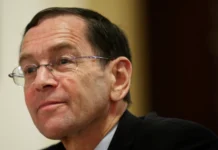Nigeria’s former President Muhammadu Buhari, a towering figure in the country’s modern political history, has died at the age of 82 in a London clinic, his family has confirmed.
A former military ruler turned elected leader, Buhari was a paradoxical figure: an austere disciplinarian who projected integrity, yet struggled to tame the very institutions he once commanded.
Buhari first came to power in 1983 through a military coup, ruling with an iron fist until his overthrow in 1985.
He re-emerged decades later as a democratic convert, campaigning on an anti-corruption platform and pledging to bring change to Africa’s most populous nation.
After three failed attempts at the presidency, he made history in 2015, becoming Nigeria’s first opposition candidate to defeat an incumbent president, Goodluck Jonathan. He was re-elected in 2019 for a second term.
Despite widespread hope, his time in office was marked by economic challenges, persistent insecurity, and widespread youth dissatisfaction.
His critics pointed to his slow decision-making and perceived detachment. Yet even among detractors, Buhari was often praised for his personal integrity and Spartan lifestyle — an uncommon trait in Nigeria’s scandal-ridden political class.
Nicknamed “Baba Go Slow” by critics for his methodical leadership style, Buhari nonetheless cultivated a loyal following among those who saw him as a symbol of stability, especially in northern Nigeria.
He is survived by his wife, Aisha Buhari, and their children.
Buhari’s legacy will be debated for years, but his life reflected the trajectory of a nation in flux — shifting between dictatorship and democracy, crisis and reform, expectation and disillusionment.



















